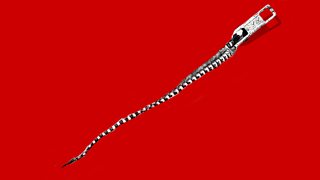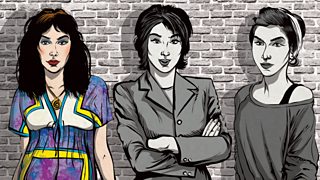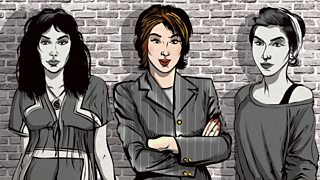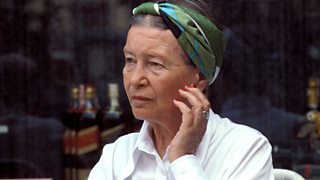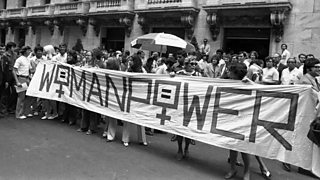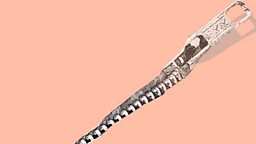Fear of Feminists
Despite the fact that, according to Simone de Beauvoir, "the first time we see a woman take up her pen in defence of her sex" was Christine de Pizan in the 15th century, it is difficult for us in the 21st century to imagine the shock that was created by the second wave feminists in the 1970s; Germaine Greer and Erica Jong (author of , published in 1973) being two of the figureheads of this so-called subversive movement.
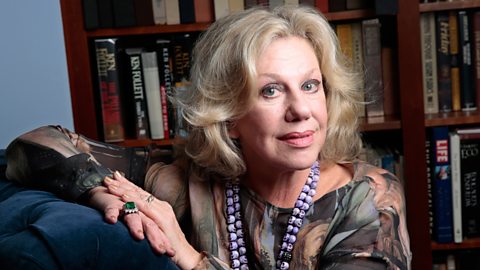
Erica Jong: 'Life is full of sex, life is full of conflict'
Erica Jong speaks to Jenni Murray in an archive interview from 1990.
They emerged from a decade in which women had no legal right to any of their husbands' earnings or property, apart from ‘proper support’, but their husbands could control their own property and earnings. It was not the norm to work, and those that did had to play by male rules; for example in 1969 it was still forbidden for women to wear trousers at the 大象传媒. Divorce was difficult to obtain and a huge stigma for women, and women were divided into “dolly birds” and “the wife”.
Into this humiliating environment strode Erica Jong and her description of a woman鈥檚 right to her own sexuality, to no-strings sex with her famous 鈥榸ipless f***鈥�
Into this humiliating environment strode Erica Jong and her description of a woman’s right to her own sexuality, to no-strings sex with her famous ‘zipless f***’ and Germaine Greer, who combined earthiness with scholarly learning and a scornful refusal to accept mediocrity or convention.
Middle class women were intoxicated. “Take back the night” marches, bra burning, Greenham Common demonstrations, women only poetry readings and consciousness raising evenings were scoffed at by many, but for some women it was their first foray into socio-politics and also the first time they felt able to genuinely share experiences with other women. Even Adrian Mole’s mother in ’s famous diary became a Greer-groupie.
It was a revolution
The first National Women's Liberation Movement march took place in London in 1971. In 1975, TIME magazine awarded its "Man of the Year" to American women, saying “they have arrived like a new immigrant wave in male America - an immense variety of women altering their lives, entering new fields, functioning with a new sense of identity, integrity and confidence."
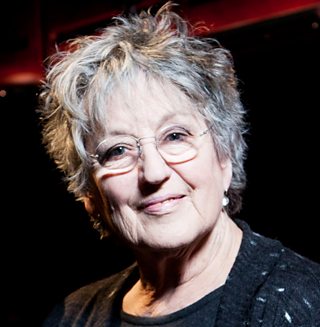
She refused to wear underwear, arm-wrestled Jimi Hendrix and won, declared that every woman should taste their own menstrual blood and once set fire to her own hair during a boring lunch in Soho.
Greer courted notoriety and seemed to be at the centre of everything in the Seventies. She was a groupie, or “the supergroupie” as she referred to herself occasionally, and enjoyed sexual adventures with bands before they became famous, with the spirit of the early Victorian explorers – get there before anyone else. She refused to wear underwear, arm-wrestled Jimi Hendrix and won, declared that every woman should taste their own menstrual blood and once set fire to her own hair during a boring lunch in Soho.
Threatening the status quo
These women were also commercial best-sellers. Greer’s book The Female Eunuch, published in 1970, became a bible to aspiring feminists, sold a million copies worldwide, has been translated into 13 languages, and has never been out of print. In 1971 she gleefully described her new-found celebrity as “if I peed on the paper, they’d print the stain.” Erica Jong, who was told by her publisher that Fear of Flying would sell 3,000 copies at best, and that she shouldn’t expect anything, (“so I didn’t”), sold upwards of 27m copies and Fear of Flying has been translated into 43 languages.
Both authors refused to kowtow to the reverence with which 1970s covertly treated men. Greer in particular would make pronouncements like: “Probably the only place where a man can feel really secure is in a maximum security prison, except for the imminent threat of release.” To hidebound British society this was incredibly shocking, threatening the status quo, and they dismissed these new feminists as dungaree-wearing man-hating lesbians.
A state of being
For Jong, who had carried Simone de Beauvoir’s The Second Sex around with her at secondary school, being a feminist was simply a state of being. As Fear of Flying was a novel rather than an academic tract she came into contact more with the general public. Unwelcome sexual advances from men were frequent and women readers often asked if they could move in with her.
Neither Jong nor Greer have damped their fires as they enter their seventh decades. “What we really need is a council of grandmothers making the war and peace decisions”, says Jong. “I have lived as I chose, married, divorced, remarried, divorced, remarried and divorced again – and, still worse, dared to write about my ex-husbands! It’s nothing more or less than the fate of rebellious women. They used to stone us in the marketplace. In a way, they still do.”
Riot Girls
-
![]()
The radio premiere of Erica Jong's bold and bawdy novel about a young woman's quest for sexual liberation.
-
![]()
Fay Weldon's darkly comic fairy tale about revenge, sex and power (adapted by Joy Wilkinson).
-
![]()
A new play exploring 1975's changing ideas about marriage, independence and female sexuality.
-
![]()
A young career woman's idealism is challenged when she encounters the seedier side of politics in the 1990s.
Fear of Feminism
-
![]()
Melvyn Bragg and guests discuss Simone de Beauvoir - her work on existentialist ethics, philosophy and literature and her influence on feminism.
-
![]()
The rise of Feminism and the subsequent empowerment of women. What have been the most lasting changes for women in the last century?
-
![]()
Gender and science fiction. The award-winning writer Geoff Ryman explores stories about women and men in future worlds and asks what might change.
-
![]()
Sue Lawley's castaway is the writer and academic who's most renowned for her views on women, sex and human relations.
